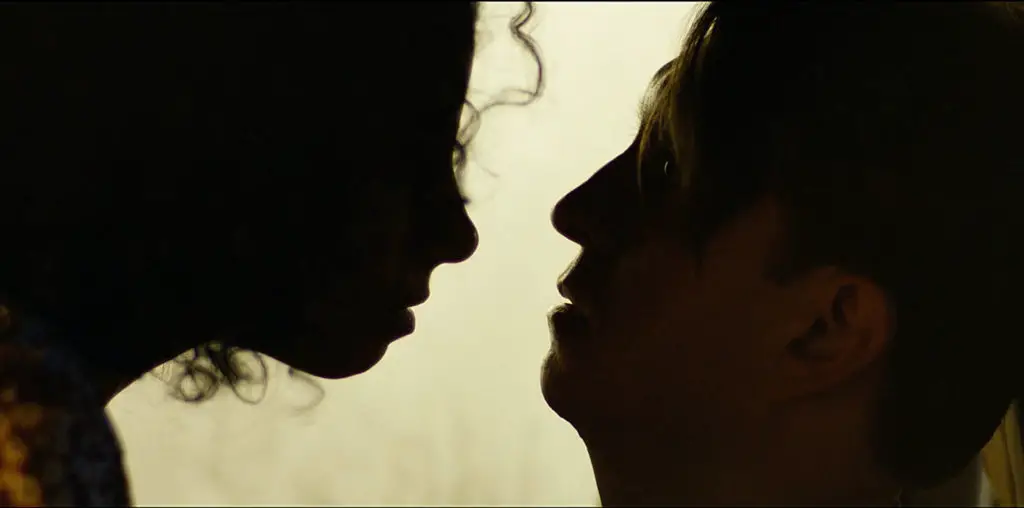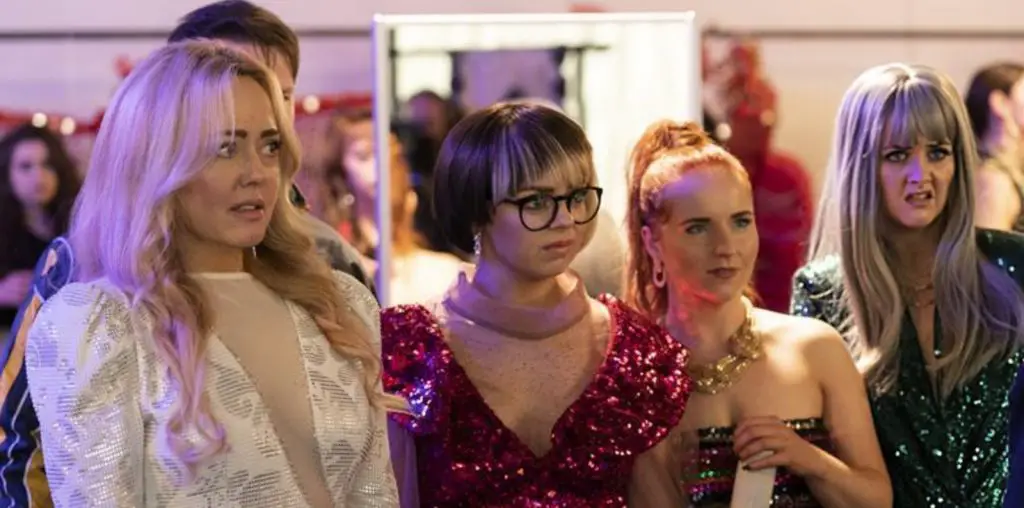
Independent filmmaker Nick Gaglia is a man on a mission: using the power of cinema to expose those who prey on troubled young adults. His critically-acclaimed 2007 feature film debut, “Over the GW,” was based on his own experiences as a drug-addicted teen who underwent physical and psychological abuse at a cult-like, tough love rehab center. His next film, currently in post-production, is the biopic “Aaron Bacon,” which details the tragic 1994 death of a troubled 16-year-old who died as a result of blatant malpractice in a tough love drug rehab camp.
Film Threat caught up with Gaglia at his New York office to talk about his cinematic crusade to expose the exploiters of troubled teenagers.
“Over the GW” is based on your life experiences. What were some of the surprises and hazards in bringing your own story into a narrative film format?
When we were filming the movie, no one in the cast or crew knew it was based on my personal experiences. One day, when we were shooting one of the restraint scenes, I overheard one of the actresses whispering to another saying that she thought I was making up the severity of the abuse for entertainment purposes and that she didn’t think that any rehab would ever be that violent. That’s when I knew at some point, as much as I didn’t want to, that I would need to make it public that I went through this experience. Most people don’t know these places exist and I was hoping in some small way this film could be a vehicle to raise awareness.
When the film came out in theaters, we had very interesting responses from different audience members. When a survivor of one of these places saw it, they would always say they loved it but unanimously agreed that it was the watered-down version of what goes on. That was one of the things they really appreciated about it because they felt that if it were too harsh they feared they wouldn’t be able to sit through the whole movie.
And then you would have your general audience member, who never heard of one of these places before. They would say they found the topic to be very interesting, but thought I was taking dramatic license and exaggerating the abuse. So, I would always laugh to myself.
“Over the GW” was picked up for distribution at Slamdance by Seventh Art Releasing. How did that come about? And how far did “Over the GW” go in terms of theatrical release?
Acquisition execs attend Slamdance regularly looking for films. After our first screening Seventh Art came up to us and said they wanted to put our film in theaters. A couple months earlier Seventh Art did a great job distributing the Jonestown movie. Ours being another cult movie based on true events, we thought they were a good match for us so we went with them. We went on to play in various cities across the nation, including New York and Los Angeles.
How did you first hear about Aaron Bacon? And why did you feel his story needed to be told on screen?
I first learnt about Aaron Bacon in a book I was reading, “Help At Any Cost” by Maia Szalavitz. He was one of the subjects in the book. When he was 16 years old, he was placed in a tough-love, drug treatment, wilderness camp to get help for his drug problem. From a parents’ point-of-view, the program looked like a serene environment where kids would be hiking in beautiful desert by day and discussing their problems with professional counselors around a campfire by night. Well, there were no professional counselors there. After enduring 30 days of physical and psychological abuse, starvation, and maltreatment, Aaron died.
After I read the book, I couldn’t get his story off my mind. So, one day I decided to write a screenplay based on his untimely death just to get the story off my chest, with no intentions of ever turning it into a movie. After I wrote the thing I felt so connected to who Aaron was as a person and so angry as to what happened to him that I felt I needed to give him a voice.
How did you research Aaron’s life? Did you speak with his family and other people who knew him?
Maia Szalavitz was so articulate and thorough with her analysis on Aaron in her book that I was able to use that as my main source of information. Aaron’s parents also supplied me with invaluable information and support.
From a legal standpoint, what issues needed to be addressed and cleared before you could proceed with a film on Aaron’s life and death?
The main roadblock was obtaining the rights from Aaron’s parents. That process took me almost a year to achieve. I did the whole process backwards. The smart way to it is to obtain the rights first then write the screenplay and fall in love with it.
It wasn’t a matter of them deciding if they trusted me with their son’s story. The second we got in contact with each other, we hit it off. What took so long was simply getting in touch with them.
There are similarities between “Over the GW” and “Aaron Bacon” in regard to the theme of young adults being abused in rehabilitation centers. Are you concerned that you are revisited previously covered territory?
You know what my concern is? My concern is the fact that there are thousands of children being abused every day in tough love rehabs and until the abuse stops, there will never be too many films that could be made about the topic. In there those kids have no voice. What I’m able to do by making these films is give these kids a voice.
Besides, while the two films cover the same territory they are vastly different in terms of plot and character development. I also experimented with different filmmaking styles in each film from my choice of cinematography to editing which is what made each experience creatively fulfilling and challenging.
As a filmmaker, how do prepare your actors to take on the roles of victimizers and prey? It would seem that the acting responsibilities are extremely intense.
I make sure the actors are prepared to expect the unexpected and have the knowledge and talent to roll with the spontaneity of the moment. We play it like real life. In real life, you don’t know what’s going to happen from moment to moment, so why should you in acting? That’s a very scary place to be in for an actor because you’re undoubtedly going to experience real emotions. But, the actors I choose to work with are very brave and we have a sense of trust with each other.
What are your distribution plans for “Aaron Bacon”?
Right now we’re going to start with the festival circuit and work our way out from there.

